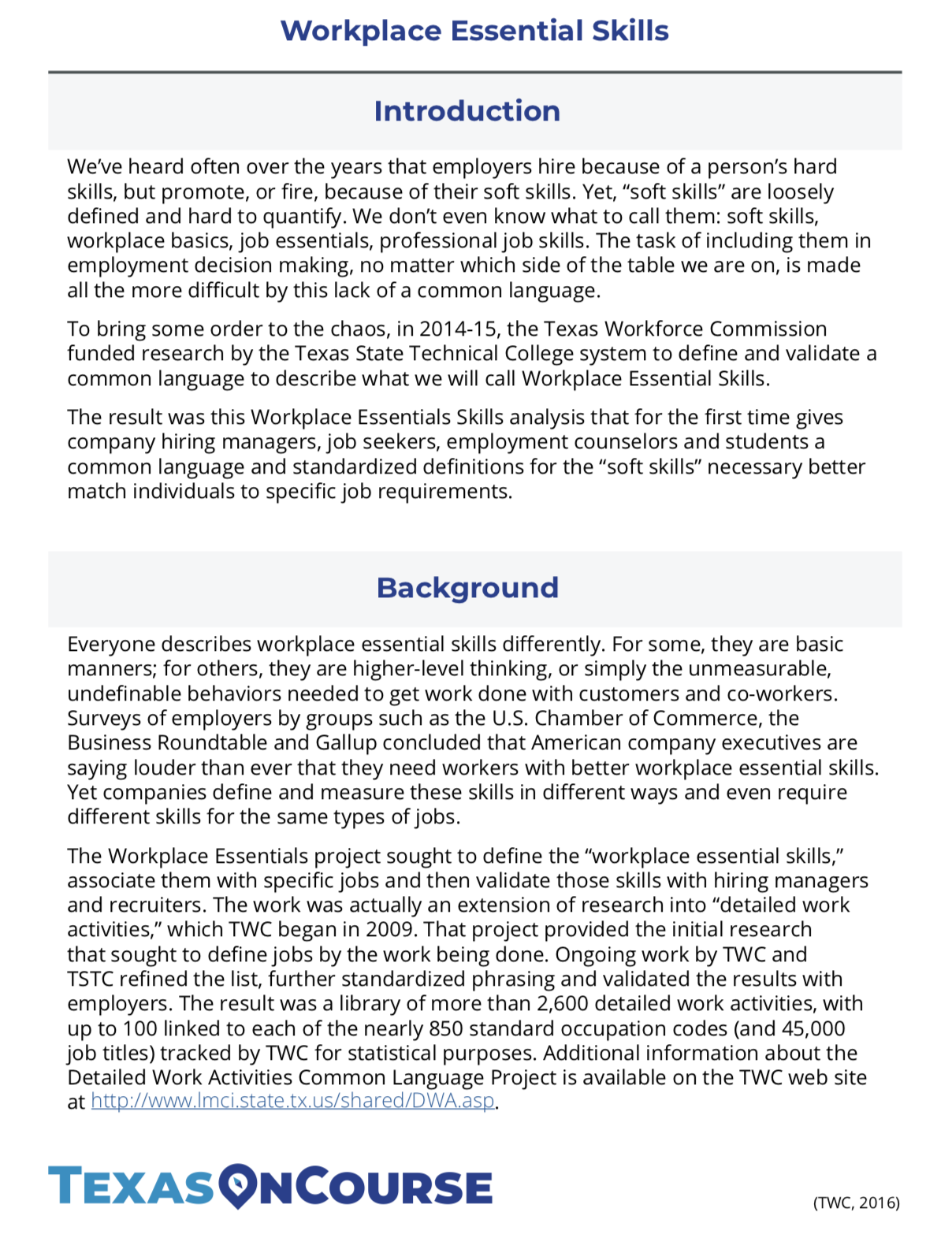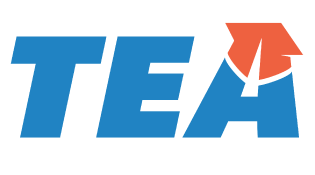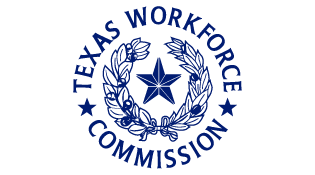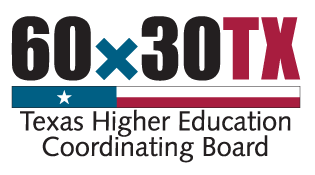In today's economy, students have to show strong skills to enter the workforce. This is especially true in the United States, where industries are growing faster but creating far fewer jobs. Students need to be ready for the increasingly competitive job market.
For more information on careers, please visit Texas OnCourse Academy and look for the modules under Career Pathways.
For a complete rundown on career exploration for students, visit our comprehensive blog post. We’ve heard often over the years that employers hire someone for their hard skills but promote (or fire) them for their soft skills. Yet, “soft skills” are loosely defined and hard to quantify. We don’t even know what to call them: soft skills, workplace basics, job essentials, professional job skills. Including these skills in employment decision making, no matter which side of the table we are on, is made more difficult by this lack of a common language.
To bring some order to the chaos, in 2014–15, the Texas Workforce Commission (TWC) funded research by the Texas State Technical College system to define and validate a common language to describe what we will call Workplace Essential Skills.
The result was the Workplace Essentials Skills analysis (first page featured below), which for the first time gives hiring managers, job seekers, employment counselors, and students a common language and standardized definitions for the “soft skills” necessary to better match individuals to specific job requirements.
Everyone describes workplace essential skills differently. For some, they are basic manners; for others, they are higher-level thinking. Or simply, the unmeasurable, undefinable behaviors needed to get work done with customers and coworkers. Surveys of employers by groups such as the US Chamber of Commerce, the Business Roundtable, and Gallup concluded that American company executives are stressing that they need workers with better workplace essential skills. Yet companies define and measure these skills in different ways and even require different skills for the same types of jobs.
The Workplace Essentials project sought to define “workplace essential skills,” associate those skills with specific jobs, and then validate those skills with hiring managers and recruiters. The work was actually an extension of research into “detailed work activities,” which TWC began in 2009. That project provided the initial research that sought to define jobs by the work being done. Ongoing work by TWC and the Texas State Technical College system refined the list, further standardized phrasing, and validated the results with employers. The result was a library of more than 2,600 detailed work activities, with up to 100 linked to each of the nearly 850 standard occupation codes (and 45,000 job titles) tracked by TWC for statistical purposes.
The Workplace Essential Skills research included a detailed survey of experienced human resources managers, hiring managers, and recruiters across Texas and the nation. Hiring experts were identified, and 140 responded by ranking the most important workplace essential soft skills that corresponded to tasks for more than 800 occupations.
To begin the process, researchers at Texas State Technical College collaborated with subject-matter experts nationwide to define the 31 core workplace essential soft skills, listed below:
- Oral Communications
- Written Communications
- Application of Math and Numbers
- Leadership
- Teamwork
- Appreciation of Diversity
- Conflict Management
- Customer Service
- Work Ethic
- Professionalism
- Critical Thinking
- Adaptability
- Organization
- Attention to Detail (Ability to Focus)
- Stress Management
- Multitasking
- Problem-Solving
- Decision-Making
- Intellectual Risk-Taking
- Thoughtful Reflection
- Initiative
- Creativity
- Dedication
- Technology and Tool Usage
- Perseverance
- Pride in Work
- Following Directions
- Information Gathering
- Resource Allocation
- Time Management
- Integrity and Honesty
Across all occupations, the survey found that these workplace essential soft skills were the most in demand across all employers:
- Information Gathering
- Attention to Detail (including Ability to Focus)
- Following Directions
- Critical Thinking
- Oral Communications
We hope this information can help instructors add workplace essential skills into classroom curriculums. This data set can also help students or job seekers improve their resumes by including workplace essential soft skills that they have gained.







